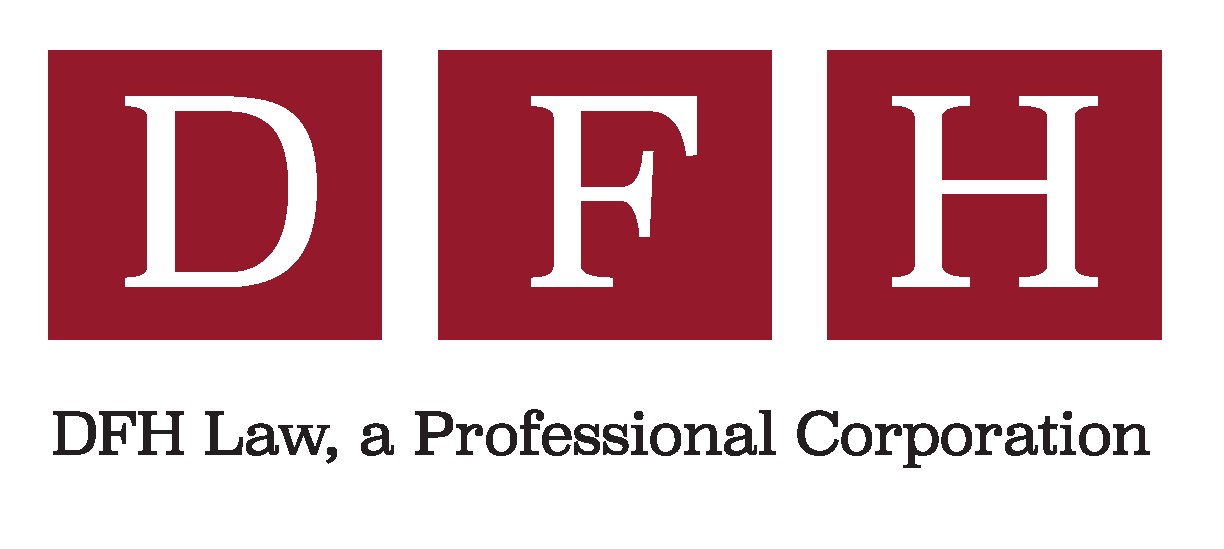Quarterly Compliance Report: May 15th is an Important Compliance Filing Deadline for Many California Charities

Musings from an Old Soul: No One Owns a Nonprofit Corporation
February 18, 2017Board Meeting Minutes: A Critical Component of Corporate Compliance
September 30, 2018Quarterly Compliance Report: May 15th is an Important Compliance Filing Deadline for Many California Charities

For most taxpayers, April 15th looms large as a tax filing deadline. However, for most California nonprofit public benefit corporations who have been recognized as tax-exempt under California Revenue and Taxation Code Section 23701d and Internal Revenue Code Section 501(c)3 (“California Charities”) May 15th is also a critical tax and regulatory compliance deadline. For California Charities whose accounting years ended on December 31, 2017, May 15, 2018 is the filing deadline for the following requirements from the California Franchise Tax Board, Internal Revenue Service and California Attorney General’s Office:
Franchise Tax Board (FTB): California Return of Tax-Exempt Organization to Franchise Tax Board and Related Forms
Form 199N (e-Postcard-Annual Electronic Filing Requirement for Small Exempt Organizations): Form 199N is generally required for California Charities whose gross receipts fell below $25,000 in 2017. NOTE: Even if your California Charity had no revenue (gross receipts) during 2017 you still must file Form 199N. Form 199N must be filed electronically (there is no paper form) by visiting https://www.ftb.ca.gov/online/199N_epostcard/index.asp. There is no extension granted to file Form 199N.
Form 199 (California Exempt Organization Annual Information Return): Generally, California Charities with gross receipts normally above $25,000 (and whose accounting years’ end December 31, 2017) must file Form 199 with the FTB by May 15, 2018. An organization that cannot file by that date may take an additional seven months to file without submitting a written request for extension, as long as it is in good standing and not suspended. (If the organization owes any tax for the year, it also may need to file Form FTB 3539, Payment for Automatic Extension for Corporations and Exempt Organizations). Organizations required to file Form 199 must pay a $10 filing fee, with certain exceptions, including an exception for charities primarily supported by contributions of the general public.
FTB Form 3509 (political and legislative activities): A California Charity that engages in political or legislative activities must attach a Form 3509, Political or Legislative Activities by Section 23701d Organizations, to its Form 199. Organizations with such activities also may be subject to registration and reporting requirements under federal, state, or local campaign finance or lobbying disclosure laws.
FTB Form 109 (unrelated business income): If a California Charity regularly carries on a trade or business that is not substantially related to its exempt purpose, and if the annual gross income equals or exceeds $1,000, the income from that business must be reported yearly to the FTB on California Form 109, California Exempt Organization Business Income Tax Return.
Consequences for Failing to File WITH FTB
Penalties
In the event a California Charity fails to file Form 109 in a timely or accurate manner it is subject to penalties. For more information regarding this see the FTB Publication – Exempt Organizations-Filing Requirements and Filing Fees referenced below.
Suspension/Forfeiture
A California Charity that fails to file one of the above required FTB forms may have its state tax-exempt status suspended or forfeited. The consequences for suspension/forfeiture are severe, and include: (1) having the corporation’s name made available for use by another organization that wants to incorporate; (2) losing the right to defend itself or file a suit in court, and (3) having contracts become voidable.
Revocation
Failure to file required state returns may also result in the revocation of an organization’s state tax exempt status. Further, failure to file for three consecutive years results in the automatic revocation of an organization’s state tax-exempt status. PLEASE NOTE: This is a common way that charities have their state taxexempt status revoked.
For more information regarding the above filings, please see the FTB Publication – Exempt Organizations-Filing Requirements and Filing Feeshttps://www.ftb.ca.gov/forms/misc/1068.pdf.
Internal Revenue Service (IRS): Federal Information Return of Tax-Exempt Organization to the IRS
Similar to the FTB filing requirement, the IRS requires California Charities to file an annual informational return even if the organization had no revenues in 2017.
Form 990-N: California Charities whose gross receipts have been consistently below $50,000 must still submit an annual electronic filing with the IRS, called a Form 990-N (e-Postcard). Like the FTB Form 199N, this form must be filed even if the organization had no revenues during calendar year 2017. Information regarding filing Form 990-N may be found at https://www.irs.gov/charities-non-profits/annual-electronic-filing-requirement-for-small-exempt-organizations-form-990-n-e-postcard. Extensions are not available, although no financial penalties exist for late filings. Form 990-N cannot be filed until after the applicable tax year ends.
Form 990-EZ: California Charities with less than $200,000 of gross receipts in 2016 and less than $500,000 in assets can file Form 990-EZ, which is the “short form” version of Form 990. (See Form 990 description below). More information regarding filing Form 990-EZ may be found at https://www.irs.gov/pub/irs-pdf/i990.pdf.
Form 990: Form 990 is required for California Charities whose gross receipts and assets exceed the Form 990-EZ thresholds described above. Form 990 is an informational tax form that most tax-exempt organizations must file annually. Simply stated, Form 990 provides the IRS an overview of the organization’s activities, governance and detailed financial information. Form 990 also includes a section for the organization to outline its accomplishments in the previous year to justify maintaining its tax-exempt status. In collecting this information, the IRS wants to ensure that organizations continue to qualify for tax exemption after the status is granted. More information regarding filing Form 990 may be found at https://www.irs.gov/pub/irs-pdf/i990.pdf.
Form 990-T (unrelated business income): If a California Charity regularly carries on a trade or business whose conduct is not substantially related to its exempt purpose, and if the annual gross income from it equals or exceeds $1,000, the income from that business must be reported yearly on IRS Form 990-T, (Exempt Charity Business Income Tax Return). The organization will be taxed on this income at the regular corporate tax rate unless the income falls under an exception. Any taxes owed must be paid on a quarterly basis. If the total expected tax for the year is $500 or more, the organization must make quarterly payments of its estimated unrelated business income tax. For California Charities with a fiscal year ending December 31, 2017 Form 990-T is due May 15th, 2018. Extensions may be requested by filing IRS Form 8868.
Unlike Form 990-N, (for which there is no extension to file), for Forms 990 E-Z and Form 990, IRS Form 8868 (Application for Extension of Time To File an Exempt Organization Return), can be used to request an automatic three-month extension as well as an additional three-month extension (not automatic), if the request is filed on or before the return is due.
Consequences for Failing to Timely File WITH IRS
Penalties
The standard penalty for filing late is $20 per day from the date the return is due up to $10,000 or 5% of the organization’s gross receipts (whichever is smaller). California Charities with annual gross receipts exceeding $1 million are subject to a penalty of $100 for each day failure continues (with a maximum penalty of $50,000). This penalty is greater for organizations whose annual gross receipts exceed $1,020,000.
Revocation
A California Charity that fails to file the appropriate Form 990 return for three years in a row is subject to automatic revocation of its federal tax-exempt status. PLEASE NOTE: This is a common way that charities have their federal tax-exempt status revoked.
Registration/Renewal Fee Report (Form RRF-1) to the Attorney General’s Registry of Charitable Trusts (along with IRS Form 990 E-Z or 990)
The California Attorney General regulates California Charities and paid fundraisers who solicit on their behalf.
Form CT-1: California Charities must register with the Attorney General’s Registry of Charitable Trusts using Form CT-1, Initial Registration Form, within 30 days of initially receiving assets. Although this is a one-time, as opposed to an annual filing, it bears mentioning. The registration must describe the primary activity of the organization; list all trustees, directors and officers; and include a copy of the charity’s organizational documents, federal tax exemption application, and IRS determination letter. For more information regarding this see https://oag.ca.gov/sites/all/files/agweb/pdfs/charities/charitable/initialReg.pdf?.
Form RRF-1 (Annual Registration Renewal Fee Report): California Charities that are required to file Form CT-1 (described above) are also required to file Form RRF-1. The purpose of the Form RRF-1, as stated on the form itself, is “to assist the Attorney General’s office with early detection of charity fiscal mismanagement and unlawful diversion of charitable assets.”
A sliding-scale filing fee is due based on the organization’s gross annual revenue for the preceding fiscal year. The Form RRF-1 is due annually according to the same deadlines as the federal Form 990 return, including extensions, and a copy of the organization’s applicable Form 990 return (if filed) must be attached.
Consequences for Failing to File with CA AG
Failure to file Form RRF-1 (and accompanying Form 990) and related fees may result in the revocation of an organization’s state tax-exempt status.
For more information regarding filing requirements with the California State Attorney General go to https://oag.ca.gov/sites/all/files/agweb/pdfs/charities/charitable/rrf1_instructs_05.pdf?.
Get Help if You Need It
For California Charities who qualify to file the state and federal electronic forms (FTB 199N and 990-N, completing these forms along with the Attorney General’s RRF-1 Form is very straightforward and most organizations should be able complete them without outside assistance. However, if your organization must file FTB Form 199 and IRS Forms 990-EZ, 990, or 990-T I highly recommend that you obtain the assistance of an accountant, CPA or other qualified person to assist with the completion of these forms as well as the AG’s RRF-1 Form.
Remember: Failure to file these required forms and to pay related fees results in your California Charity being out of compliance and may result in penalties, suspension/forfeiture and the eventual revocation of your tax-exempt status.
IMPORTANT NOTE: THE INFORMATION CONTAINED IN THIS ARTICLE IS INTENDED TO PROVIDE A BROAD OVERVIEW OF SOME COMPLIANCE REQUIREMENTS, IS NOT EXHAUSTIVE, VARIES IN ITS APPLICATION BASED ON YOUR ORGANIZATION’S UNIQUE FACTS AND CIRCUMSTANCES AND SHOULD NOT BE RELIED ON AS LEGAL ADVICE.
